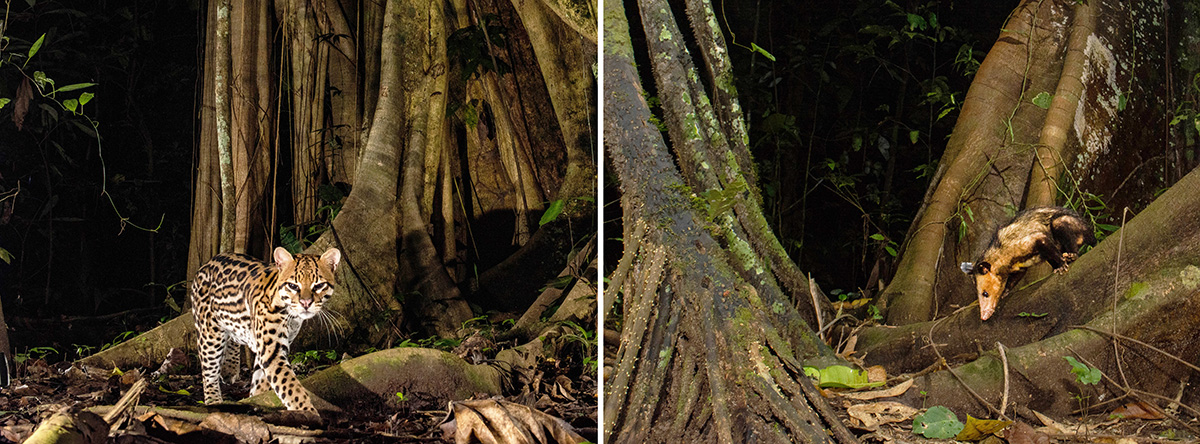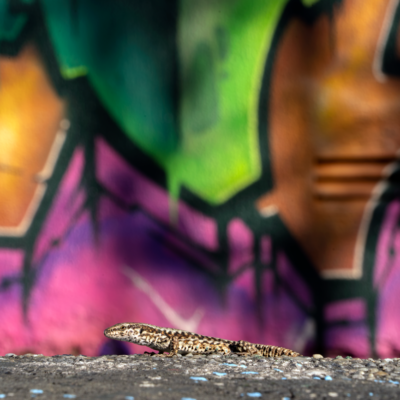Solitary animals roaming the nocturnal jungle together – what sounds like a scene from a fairytale has now been scientifically documented. In their study titled “Beyond predator and prey: first evidence of an association between ocelot and opossum individuals”, a research team led by behavioral ecologists at Bielefeld University in collaboration with researchers from ETH in Zurich describes for the first time a puzzling relationship between two very different species: the ocelot (Leopardus pardalis) and the common opossum (Didelphis marsupialis). The study has now been published in the journal Ecosphere.
“Even though we still do not know if this is the case, we could be witnessing the South American counterpart to the well-known partnership between coyotes and badgers in North America,” explains Dr. Isabel Damas-Moreira, behavioral ecologist at the Faculty of Biology at Bielefeld University and senior author of the study. Such cooperations are particularly fascinating, “because they can show that these relationships can develop even between unrelated species.”

© Fortunato Rayan
Originally, the researchers aimed to document bird behavior using camera traps. In the process, they came across a video footage showing an ocelot and an opossum moving side by side – with no signs of aggression, fear, or hunting behavior. After contacting more researchers, they found more evidence of the same association, across four different regions in the Peruvian Amazon and spanning different years. In every case, the opossum seems to lead the way, with the ocelot closely following. Using additional experiments in the wild, they also found that opossums have a clear attraction to the scent of ocelots, on which they often rub themselves against, ignoring other scent samples, such as those of pumas. This suggests a deliberate attraction to ocelots.
Mutual Benefit Instead of Hunting Instinct
The researchers suspect a mutual benefit behind this unusual association, as ocelots could simply prey an opossum. Opossums may benefit from the protective presence of the ocelot, while the ocelot might be aided in foraging by the opossum’s unique traits – such as their resistance to viper venom. A form of chemical camouflage through the blending of their scents is also possible.

© Bielefeld University
The discovery is undoubtedly significant for science: it opens new perspectives on animal social behavior and highlights how much in the rainforest ecosystem remains unknown. “This discovery was accidental. It reminds us how important it is to observe closely – because nature is often more complex than we think” says Damas-Moreira.
The study was conducted in collaboration with international partners, with Bielefeld University taking the lead.




